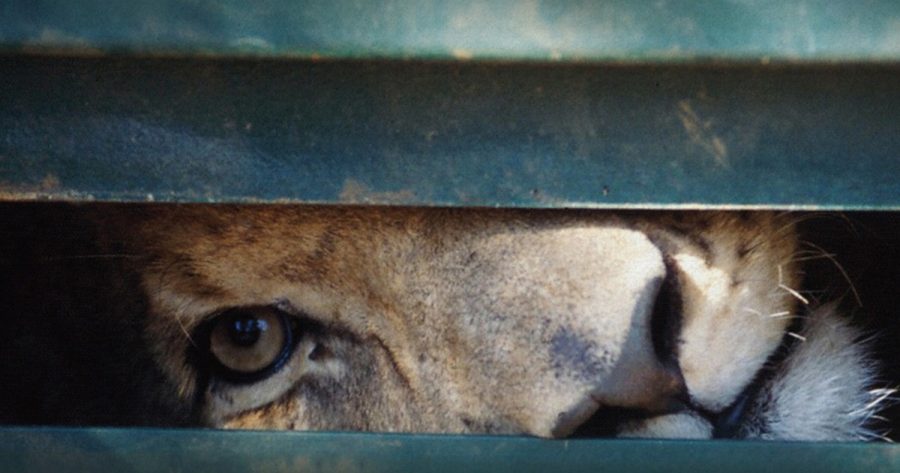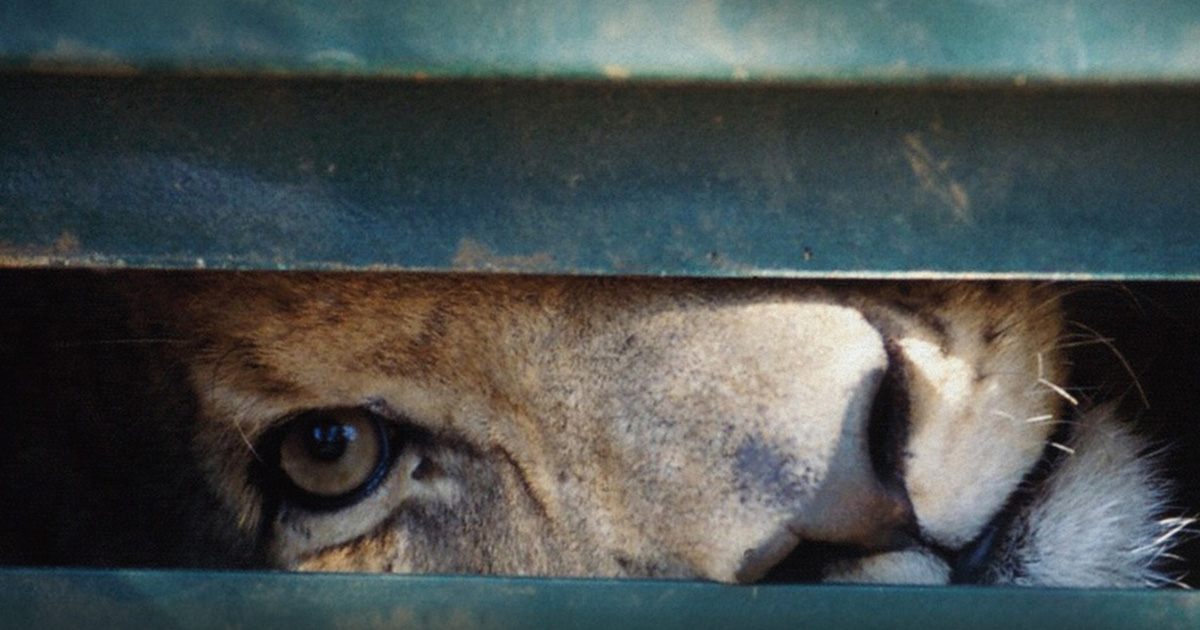
Award-winning film about SA’s ‘canned’ lions launches worldwide for public viewing – Blood Lions
BLOOD LIONS ®, an award-winning South African documentary, has been launched on YouTube and is now freely available for worldwide public viewing to further increase awareness around the exploitation of captive-bred lions and other predators in SA. The film, which premiered in 2015, blows the lid off misleading claims made by the predator breeding and […]

BLOOD LIONS ®, an award-winning South African documentary, has been launched on YouTube and is now freely available for worldwide public viewing to further increase awareness around the exploitation of captive-bred lions and other predators in SA.
The film, which premiered in 2015, blows the lid off misleading claims made by the predator breeding and canned hunting industries in South Africa.
This public launch forms part of a global, collaborative campaign to create awareness around South Africa’s captive predator breeding, “canned” hunting, live trade and lion bone industries, as well as the various spin-off activities such as cub petting, walking with lions and voluntourism.

The Impact:
Produced by Regulus Vision, BLOOD LIONS ® premiered in 2015, and was distributed worldwide by PBS International and IFD in South Africa. Through these organisations, and supported by a global awareness campaign, the film has been viewed by millions around the world in more than 180 countries and territories via TV, VOD, DVD, film festivals, theatre and private screenings. It has also been subtitled into six different languages.
In a groundbreaking statement by Minister Creecy of the Department of Forestry, Fisheries and the Environment in May 2021, South Africa took a crucial and long-awaited step towards changing the status quo of the commercial captive lion breeding industry.
In her statement, she announced that “The [High-Level] panel recommends that South Africa does not captive breed lions, keep lions in captivity, or use captive lions or their derivatives commercially. I have requested the department action this accordingly and ensure that the necessary consultation for implementation is conducted.”
“Immediately following the extremely positive (albeit outraged!) global response to the release of BLOOD LIONS ®, the Blood Lions Campaign was launched as a “call to action” to continue to raise awareness around the horrors of the captive lion breeding industry, with the ultimate aim of
bringing an end to it. We were aware it would take time, but firmly believed that with the commitment of our small but dedicated team, reinforced by the incredible support of our followers, benefactors and partners worldwide, we could make an impact and affect meaningful
change. This is indeed happening, with our government’s acknowledgement that the industry has no conservation value, has discredited South Africa’s conservation and tourism reputations,
and that it should be phased out. We remain committed to our objectives, and to supporting this process of policy change and its implementation,” states Pippa Hankinson (BLOOD LIONS ® Director and the film’s Producer).
About the film:
The film exposes the practices of the captive lion breeding industry in South Africa, reveals the commercial tourism trade and the human-manipulated life cycles of the lions, and also shows how thousands are bred for the sole purpose of being killed in “canned” or captive hunting
operations and/or for the bone trade to Asia.
BLOOD LIONS ® follows acclaimed environmental journalist and safari operator, Ian Michler, and American hunter, Rick Swazey, on their journey to uncover the realities of the multi-million dollar predator breeding and canned lion hunting industries in South Africa.
The film also exposes how thousands of unsuspecting tourists and volunteers visiting South Africa are mostly unaware that their money contributes to the fraudulent and exploitative use of these animals.
Cubs born in captivity in South Africa are often ripped away from their mothers within days of birth. The breeders claim they are orphaned and will one day be rewilded. However, this is untrue, as the practice is simply to bring the mothers back into oestrus (to become fertile) again
more quickly, leading to intense breeding cycles where they can give birth to up to four times more litters of cubs than lionesses in the wild.
Many of the cubs are introduced into petting enclosures at 3-4 weeks of age, to provide paying tourists with selfie opportunities, while international paying volunteers hand-rear and bottle-feed these so-called “orphaned and abandoned” cubs.
As the animals grow, they are often sold to facilities to be used for other interactive tourist activities, such as ‘walking with lions’, and many may also be abused in the advertising and film industry. Most of these activities are offered under the guise of conservation with emotional
stories that the cubs were abandoned, orphaned, or that the mother didn’t have enough milk.
The public launch of BLOOD LIONS ® comes at a critical time for lions, when a Ministerial Task Team appointed by Environment Minister Barbara Creecy is working towards identifying voluntary exit options and pathways for lion owners from the captive lion industry. This panel of
experts will also be required to oversee the implementation and monitoring of this voluntary phase out.
“The Ministry should be given support during the closing down process as this needs to happen sooner rather than later. With each passing year, South Africa’s conservation and tourism reputation remains stained while thousands of lions and other predators continue to suffer. In the meantime, with Blood Lions now launching worldwide for public viewing, the film will continue to play a vital role in spreading awareness about the horrors of the captive breeding and canned hunting industries”, says Ian Michler (BLOOD LIONS ® Director).
The BLOOD LIONS ® documentary is now freely available to watch on YouTube globally and viewers are encouraged to share the film with their friends and family.
Watch Blood Lions film here:
Source: Blood Lions
